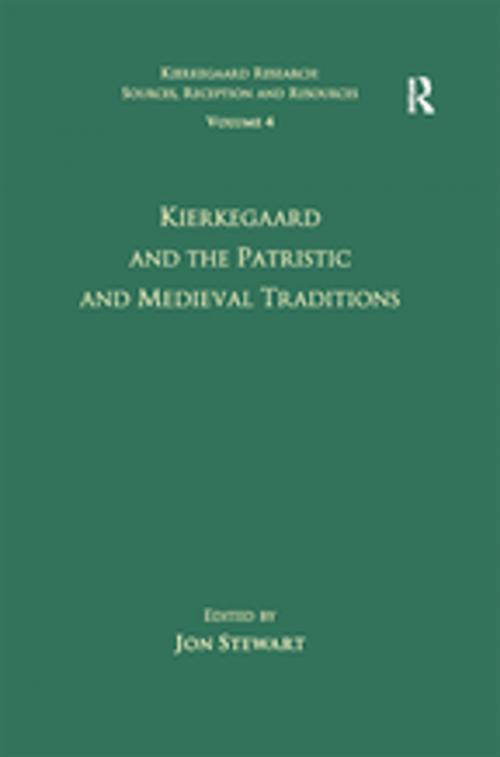Volume 4: Kierkegaard and the Patristic and Medieval Traditions
Nonfiction, Religion & Spirituality, Philosophy| Author: | ISBN: | 9781351874601 | |
| Publisher: | Taylor and Francis | Publication: | December 5, 2016 |
| Imprint: | Routledge | Language: | English |
| Author: | |
| ISBN: | 9781351874601 |
| Publisher: | Taylor and Francis |
| Publication: | December 5, 2016 |
| Imprint: | Routledge |
| Language: | English |
This volume features articles which employ source-work research to trace Kierkegaard's understanding and use of authors from the Patristic and Medieval traditions. It covers an extraordinarily long period of time from Cyprian and Tertullian in the second century to Thomas à Kempis in the fifteenth. Despite its heterogeneity and diversity in many aspects, this volume has a clear point of commonality in all its featured sources: Christianity. Kierkegaard's relation to the Patristic and Medieval traditions has been a rather neglected area of research in Kierkegaard studies. This is somewhat surprising given the fact that the young Kierkegaard learned about the Patristic authors during his studies at the University of Copenhagen and was clearly fascinated by many aspects of their writings and the conceptions of Christian religiosity found there. With regard to the medieval tradition, in addition to any number of theological issues, medieval mysticism, medieval art, the medieval church, troubadour poetry and the monastic movement were all themes that exercised Kierkegaard during different periods of his life. Although far from uncritical, he seems at times to idolize both the Patristic tradition and the Middle Ages as contrastive terms to the corrupt and decadent modern world with its complacent Christianity. While he clearly regards the specific forms of this Medieval appropriation of Christianity to be misguided, he is nonetheless positively disposed toward the general understanding of it as something to be lived and realized by each individual.
This volume features articles which employ source-work research to trace Kierkegaard's understanding and use of authors from the Patristic and Medieval traditions. It covers an extraordinarily long period of time from Cyprian and Tertullian in the second century to Thomas à Kempis in the fifteenth. Despite its heterogeneity and diversity in many aspects, this volume has a clear point of commonality in all its featured sources: Christianity. Kierkegaard's relation to the Patristic and Medieval traditions has been a rather neglected area of research in Kierkegaard studies. This is somewhat surprising given the fact that the young Kierkegaard learned about the Patristic authors during his studies at the University of Copenhagen and was clearly fascinated by many aspects of their writings and the conceptions of Christian religiosity found there. With regard to the medieval tradition, in addition to any number of theological issues, medieval mysticism, medieval art, the medieval church, troubadour poetry and the monastic movement were all themes that exercised Kierkegaard during different periods of his life. Although far from uncritical, he seems at times to idolize both the Patristic tradition and the Middle Ages as contrastive terms to the corrupt and decadent modern world with its complacent Christianity. While he clearly regards the specific forms of this Medieval appropriation of Christianity to be misguided, he is nonetheless positively disposed toward the general understanding of it as something to be lived and realized by each individual.















